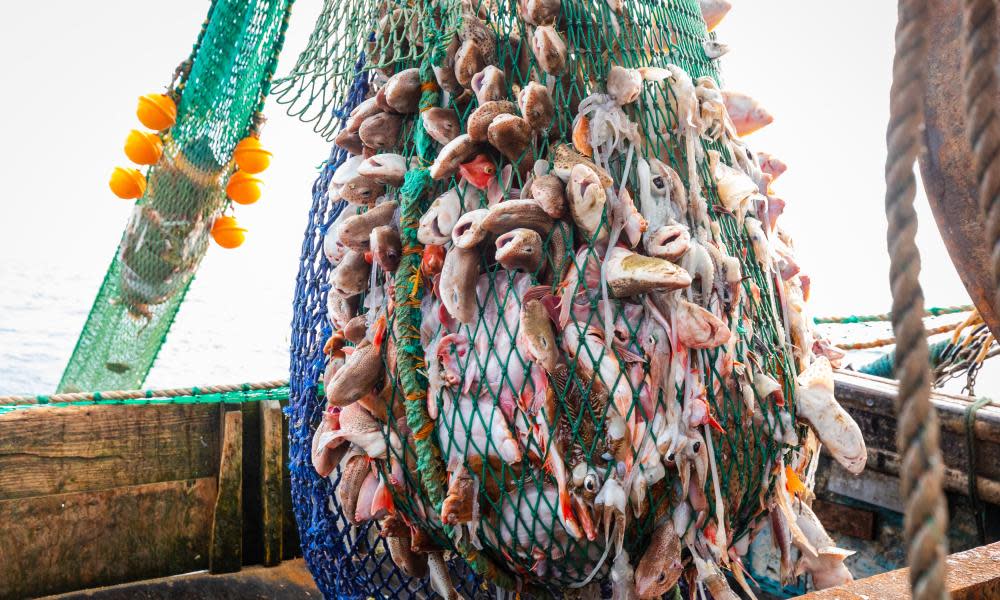Brexit fishing gamble suggests No 10 forgot its economics homework

An island nation can be forgiven for a preoccupation with fish. But with less than a month until the UK’s trade with the EU moves to new rules – whether under a deal or no-deal scenario – it is possible that continuing attempts to gain a win for British fishing industry could scupper much larger parts of the UK economy.
Fishing is a politically charged issue on both sides of the Channel. Boris Johnson has talked of the UK becoming “an independent coastal state” and exploiting the “recapture of our spectacular natural marine wealth”, while Michel Barnier, the EU’s chief negotiator, has warned the UK against using fish as a “bargaining chip” (apparently not a pun on Britain’s national dish). Meanwhile, far bigger industries in the UK economy are left waiting.
The UK’s entire automotive industry was worth £49bn in 2019, of which £16bn was manufacturing, according to the Office for National Statistics. In the same year, fishing and aquaculture was worth £446m, less than 3% of the size of the under-threat car manufacturing sector alone.
Even if No 10 succeeds in its ambition of taking 60% of catches in British waters back from EU vessels, gains for the country’s fishing industry could never come close to matching potential losses from the UK’s economic leviathans.
Output from financial and insurance activities – a large proportion of which is carried out in London – was £125bn last year. Yet the government quickly gave up on the City’s hopes for special access to the European market, and there are still questions about whether Brussels will view UK firms as equivalent to their EU rivals in a regulatory sense after 1 January. Bankers have been the subject of public and political ire since the global financial crisis of 2007-08, but it is clear that the focus on fishing risks neglecting the basic functioning of much weightier parts of the economy.
Lord Liddle, a veteran of European trade negotiations who advised Peter Mandelson when the latter was the EU’s trade commissioner, said Brussels’ negotiators will have organised their strategy around offensive and defensive interests. That approach does not seem to have been mirrored on the UK side, with the British government giving up on securing favourable rules of origin – which decide whether cars made with imported parts will attract tariffs – while holding firm on fishing.
“To have ended up with this great row about fishing suggests to me they haven’t made those calculations,” he said.
Liddle said the UK got a poor deal on fishing in the 1970s when joining the European Economic Community, but added that Johnson’s promises of a renaissance for the British fishing industry seemed overly optimistic.
Even if the number doubled from the 12,000 fishers the government says there are now, the industry would still be a minnow compared with the 864,000 people working in the UK car industry, according to the Society for Motor Manufacturers and Traders.
There is an irony in the fact that the automotive and finance were two of the industries most assiduously courted by Margaret Thatcher during the 1980s. Now they face an overnight transition to World Trade Organization terms on 1 January – a disaster in their eyes – under another Conservative prime minister.
Yet the collapse of Brexit negotiations is unlikely to benefit much of the UK fishing industry in the short term. Many of the fish favoured by Britons are imported, while the species native to UK waters are more popular in overseas markets.
Tariffs would overnight change the terms of trade, potentially making some exports unprofitable. That could mean a glut of cheaper fish in the UK, a possible boon for consumers – as long as British people can learn to love mackerel once more – but falling prices would be unlikely to revive fishing regions.
The dynamic is mirrored on the other side of the Channel, where the French president, Emmanuel Macron, is keen to be seen as fighting for France’s relatively poorer northern coastal communities before elections in 2022. Yet across the entire EU and UK the fishing industry employed only 180,000 people in 2017.
The brutal realities of the trade-offs in the negotiations are becoming clear. The car and finance industries would never say it aloud, but there is exasperation among executives and unions that their fortunes, and the fate of other sectors, are reliant on the government’s efforts to expand a much smaller industry.
However, bigger sectors are wary of being seen to criticise a smaller counterpart. One industry insider said: “We would never go: ‘Frankly, we should give up cod for car parts.’”

 Yahoo Movies
Yahoo Movies 
